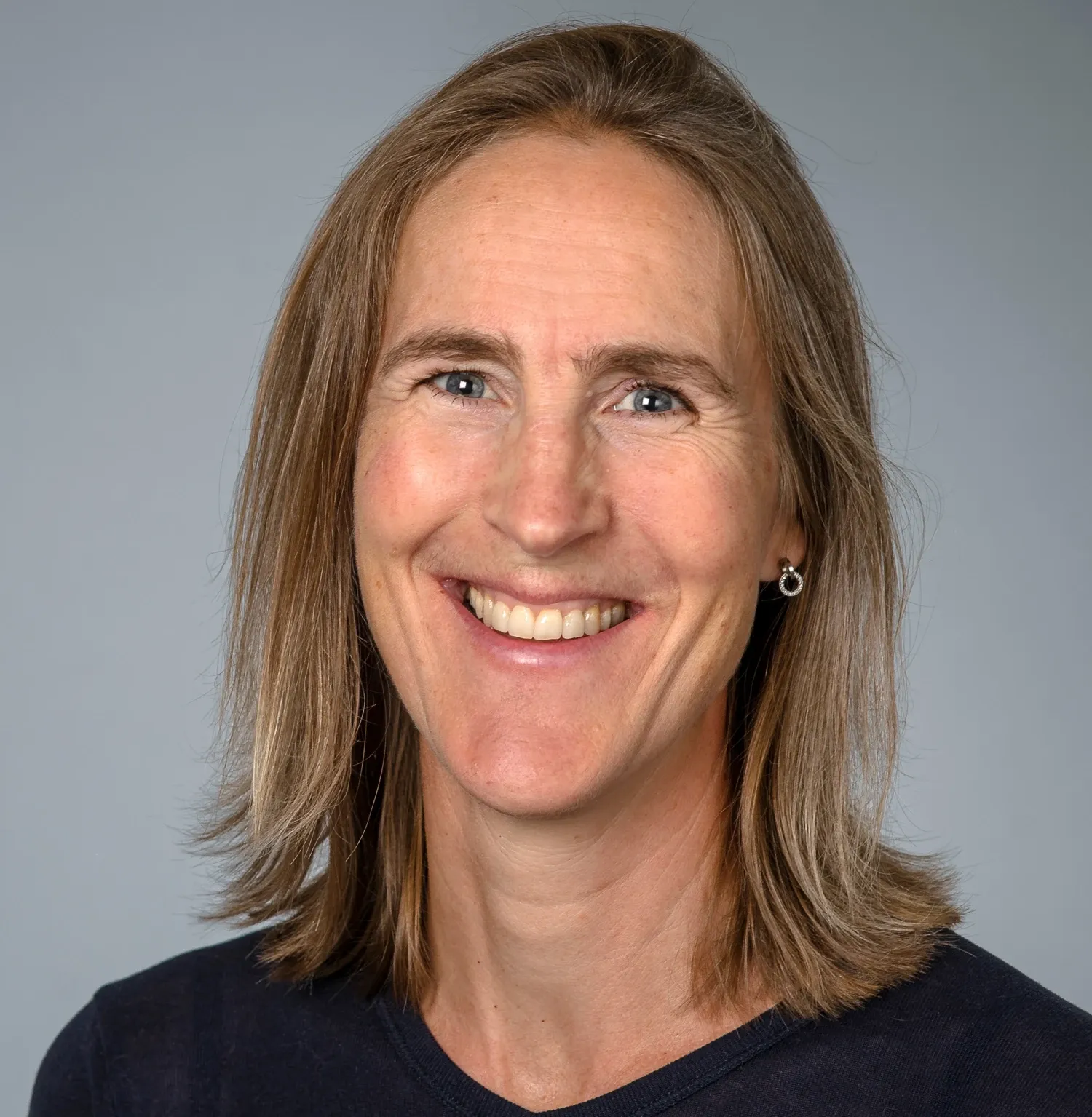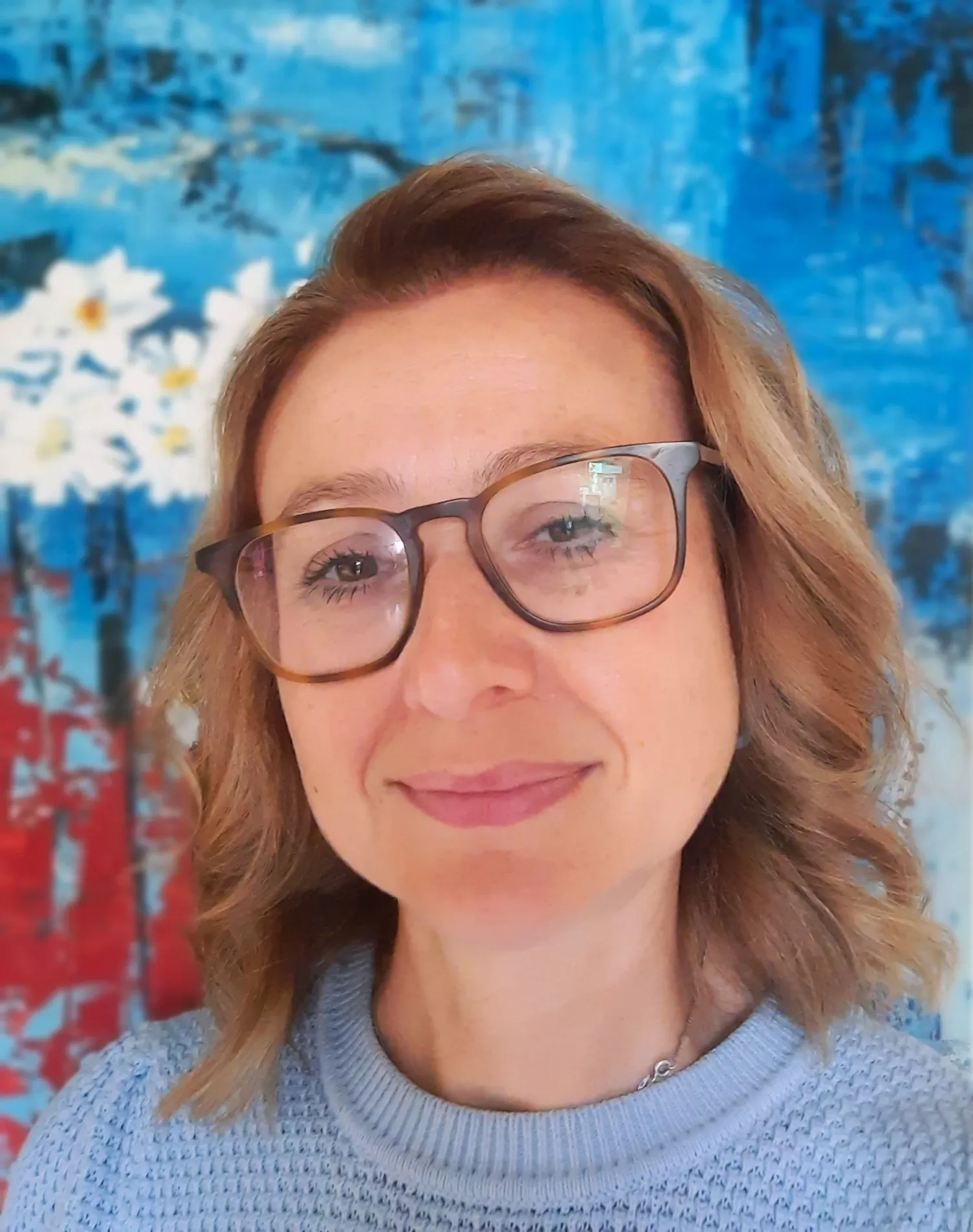Keynotes and symposiums
Discover keynotes and symposiums with experts across health care science, offering insights on their research.

Keynote 1:
14/11 - 09.45-10.35
The ground floor Alfred Nobels allé 23, lecture hall H1
Title:
Co-creation of eHealth tools for delivery of non-pharmacological interventions in people with chronic disease
Speaker:
Karin Wadell, Reg Physiotherapist, Professor of Physiotherapy, Department of Community Medicine and Rehabilitation, Umeå University
About:
As a physiotherapist I have been lucky to work clinically with people with pulmonary diseases through interprofessional collaboration for close to 30 years. As a researcher, I started to evaluate the effects of exercise training and physical activity interventions in people with COPD. Striving for a better implementation of evidence-based interventions my focus changed, and our research group has developed different eHealth tools (KOLwebben.se, Min KOL) by using structured co-creation. I will talk about experiences from these processes including the EU-project Health CASCADE and from my work with the development of new treatment guidelines from The National Board of Health and Welfare and The Swedish Medical Products Agency.

Keynote 2:
15/11 - 14.10-15.00
The ground floor Alfred Nobels allé 23, lecture hall H1
Title:
Impacting population health – challenges and future directions in implementing research into practice
Speaker:
Lydia Kwak, Associate Professor and Senior Lecturer in health promotion, Unit of Intervention and Implementation Research, Institute of Environmental Medicine, Karolinska Institutet
About:
The main area of my research concerns implementation research aimed at facilitating the implementation of evidence-based interventions into practice. I study both the effectiveness of interventions to promote worker health and the implementation strategies that support their implementation in routine practice. A key aspect of my work involves collaborating with relevant stakeholders to ensure the successful uptake of evidence-based interventions and maximize their impact on population health.
Symposiums:
Symposium 1
Time and date:
14/11 - 14.40-15.40
The ground floor Alfred Nobels allé 23, room S114
Title:
Transforming Healthcare: The Promise and Practice of Precision Health
Speakers:
Tina Gustavell, Reg Nurse, PhD, Division of Nursing, Department of Neurobiology, Care Sciences and Society, Tema Cancer, Karolinska Institutet
Catarina Lindqvist, Catarina Lindqvist, Specialist Dietitian in Hepatology, PhD, Department of Medicine, Huddinge, Karolinska Institutet; Section Clinical Nutrition, Karolinska University Hospital.
Helena Ullgren, Reg Nurse oncology and palliative care, PhD, Department of Oncology-Pathology, Karolinska Institutet; Tema Cancer, Karolinska University Hospital.
Moderator:
Lina Bergman, Postdoc, SFO-V Fellow, Department of Neurobiology, Care Sciences and Society, Karolinska Institutet
Abstract:
The ultimate goal of precision health is to improve health outcomes by providing more precise, predictive, and preventive healthcare, reducing the incidence of disease and enhancing the quality of life for individuals. This approach represents a shift from reactive to proactive healthcare, focusing on maintaining health rather than solely treating illness. During this symposium you will learn more about what precision health is and how it can be developed.
Precision health – what does it embrace?
Tina Gustavell, RN, PhD
Where is cancer nursing in precision health?
Helena Ullgren, RN oncology and palliative care, PhD
How can we improve nutrition and health by self-care practices?
Catarina Lindqvist, RD hepatology , PhD
Questions and discussion with the audience
Tina Gustavell, Catarina Lindqvist and Helena Ullgren
Symposium 2
Time and date:
14/11 - 14.40-15.40
The ground floor Alfred Nobels allé 23, room S104
Title:
Skin-to-skin contact at birth for newborn infants – why is it important? Challenges and future directions.
Speakers:
Wibke Jonas, Midwife, Associate Professor and senior lecturer, Department of Women’s and Children’s Health, Karolinska Institutet
Siri Lilliesköld, Specialist Nurse, PhD student, Department of Women’s and Children’s Health, Karolinska Institutet, and Department of Neonatology, Karolinska University Hospital
Moderators:
Karin Emtell Iwarsson, SFO-V Fellow, Department of Women´s and Children´s Health, Karolinska Institutet utet
Abstract:
In this symposium we will explore the impact of skin-to-skin contact as practiced in the immediate postpartum period between parents and newborn infants. Why is close contact between parents and their newborn babies important, especially at birth? We will present global recommendations for practice and share up-to-date research results from our recent randomized clinical trial IPISTOSS, the “Immediate Parent-Infant Skin-to-Skin Study”, aiming to bridge the knowledge gap on the impact of skin-to-skin contact at birth for one of the most vulnerable populations, very preterm infants and their parents.
Questions and discussion with the audience
Karin Emtell Iwarsson, Reg. Nurse Midwife, PhD, Department of Women´s and Children´s Health, Karolinska Institutet
Symposium 3
Time and date:
15/11 - 13.00 -14.00
Room 114
Title:
Challenges and next steps in research addressing adolescents’ health promotion needs
Speakers:
Gisela Nyberg, Professor, Senior lecturer in Physical activity and health, Dep. Physical Activity and Health, Swedish School of Sport and Health Sciences (GIH).
Marianna Moberg, PhD, Postdoctor, Division of Nursing, Department of Neurobiology, Care Sciences and Society, Karolinska Institutet
Åsa Burström, PhD, Assistant professor and head of unit, Division of Nursing, Department of Neurobiology, Care Sciences and Society, Karolinska Institutet
Moderators:
Lisette Farias, Docent, Assistant Professor, Division of Occupational Therapy, Department of Neurobiology, Care Sciences and Society, Karolinska Institutet
Susanne Andermo, Docent, Assistant Professor and dept. head of division, Division of Nursing, Department of Neurobiology, Care Sciences and Society, Karolinska Institutet
Abstract:
Adolescents face many challenges, including increasing academic and social expectations and the physical changes associated with maturation. More research is needed to understand what implementation strategies are effective for adolescents and what and how environmental factors influence their intended implementation settings. This symposium will focus on health promotion research with adolescents, families, and those who work closely with this group.
Introduction:
Lisette Farias – Engaging adolescents and communities living in neighborhood with low socioeconomic status
Susanne Andermo – Health promotion among adolescents in schools
Presentations:
Physical activity, screen habits and health among adolescents
Gisela Nyberg
School nurses’ health promotive conversations
Marianna Moberg
The need for information on reproductive and sexual health for adolescents with heart disease Åsa Burström
Questions and discussion with the audience
Lisette Farias and Susanne Andermo
Symposium 4
Time and date:
15/11 - 13.00 -14.00
The ground floor Alfred Nobels allé 23, room S104
Title:
Embedding patient and public involvement in health research
Speakers:
Anne Wettergren Karlsson, PhD Health Science, User Perspectives & Community Based Interventions, University of Southern Denmark
Center for Research with Patients and Relatives, Odense University Hospital
Moderators:
Sebastian Lindblom, Postdoc, SFO-V Fellow, Department of Neurobiology, Care Sciences and Society, Karolinska Institutet
Hanna Johansson, Postdoc, SFO-V Fellow, Department of Neurobiology, Care Sciences and Society, Karolinska Institutet
Abstract:
30 years after various political and funding agendas started highlighting patient and public involvement (PPI) for it’s promising outcomes of better research and democratic inclusion, it often remains at the fringes of research processes resulting in tokenistic approaches, unfulfilled potential and time wasting. In this presentation I will share the results of my PhD on the subject and our practical experiences of implementing PPI in research on a strategic level at Odense University Hospital. As the World Health Organization and the revised version of the Helsinki declaration now both clearly marks PPI as pivotal for the future, together we will examine obstacles encountered and necessities needed to truly embed PPI in research processes.
